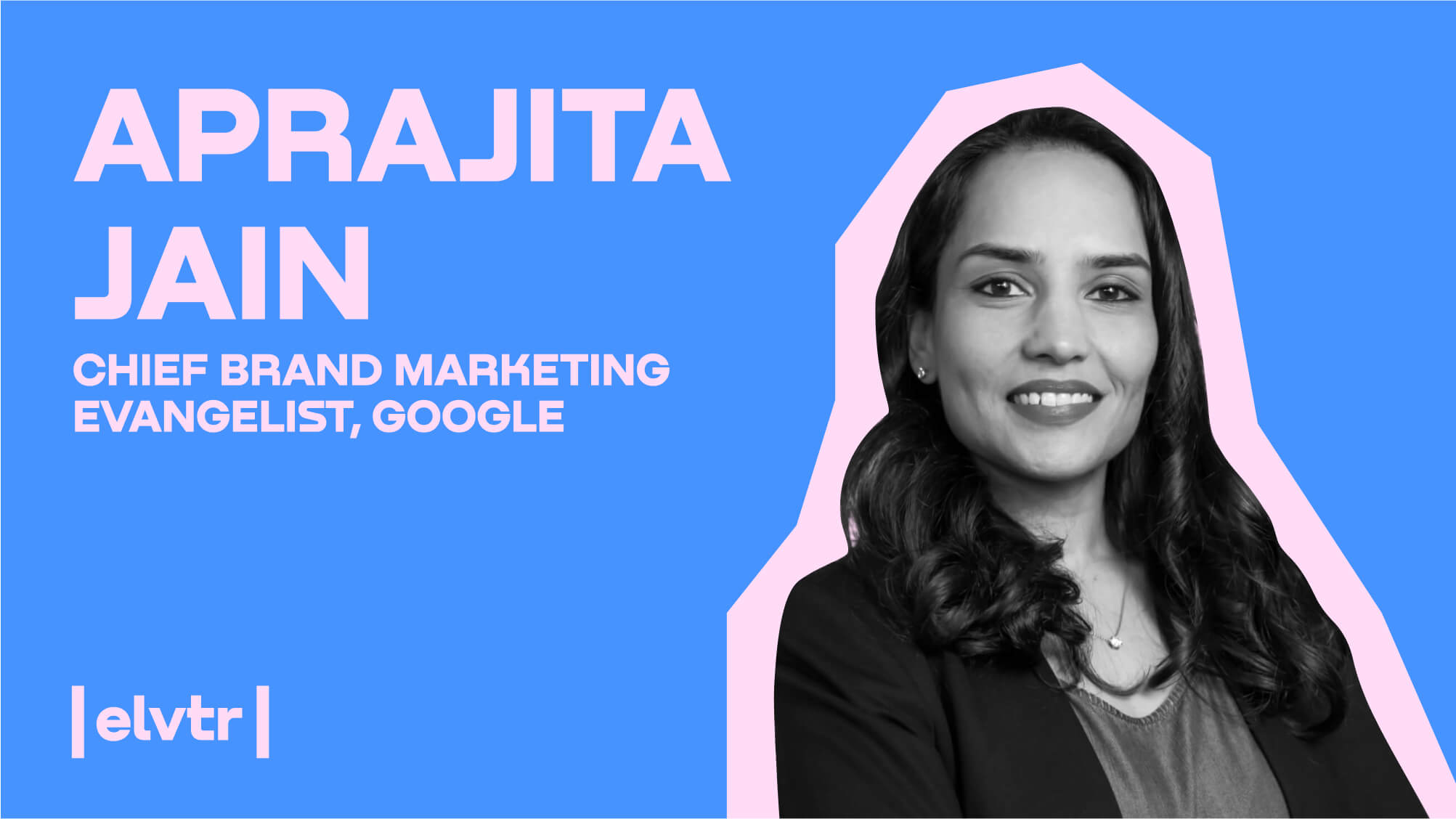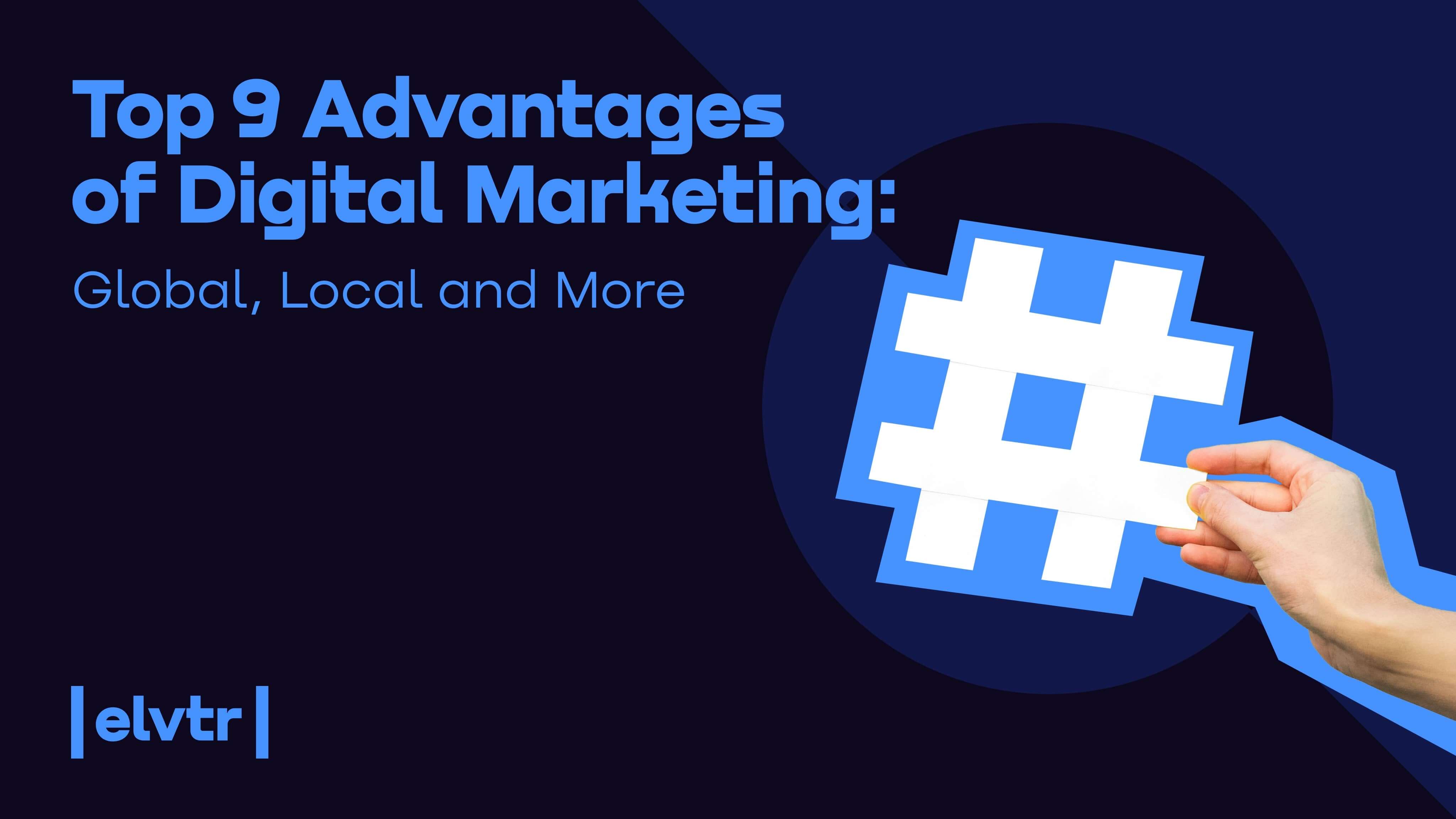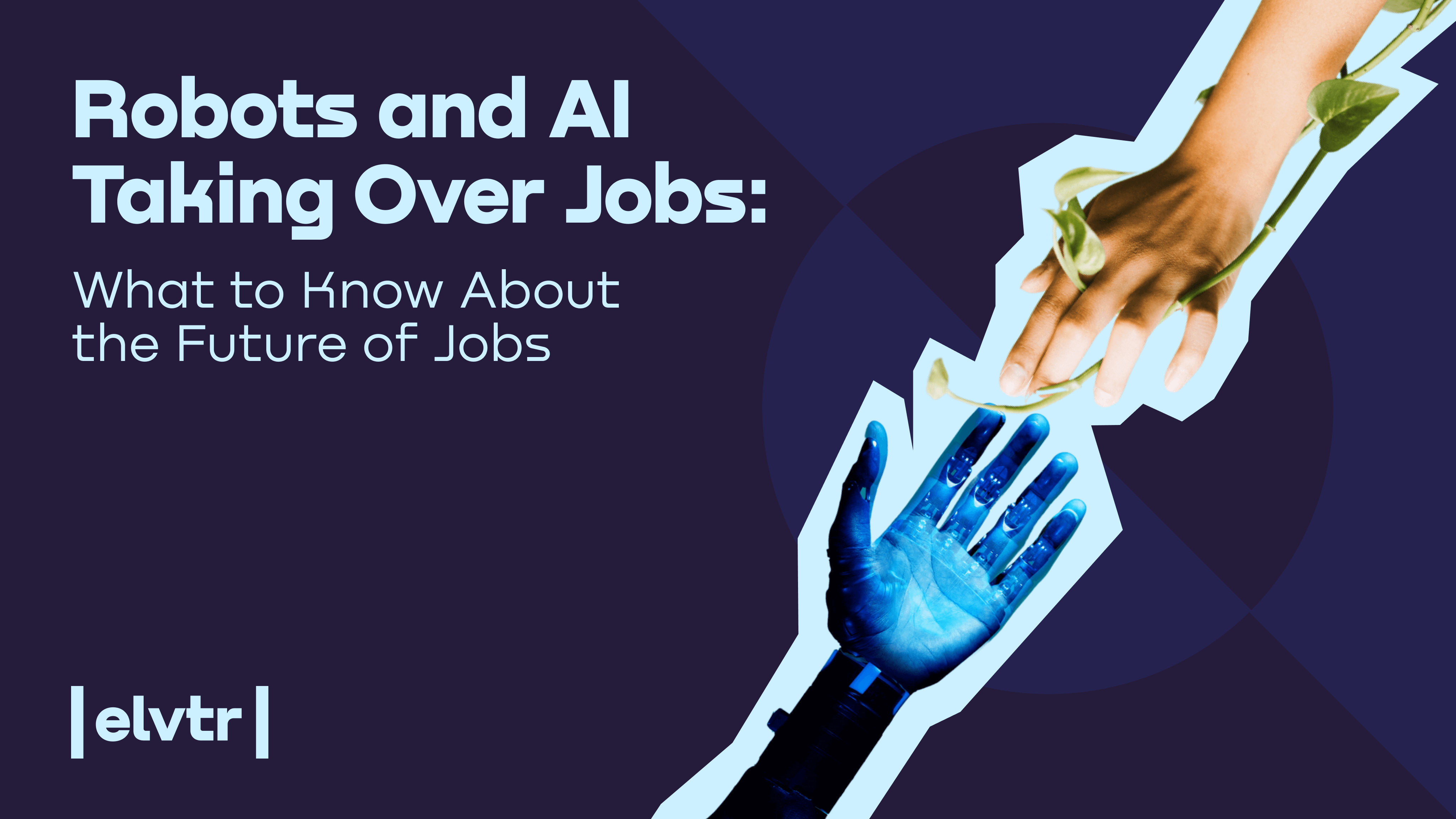- MAIN PAGE
- – elvtr magazine – GOOGLE’S CHIEF BRAND MARKETING EVANGELIST APRAJITA JAIN ON THE FUTURE OF DIGITAL MARKETING
GOOGLE’S CHIEF BRAND MARKETING EVANGELIST APRAJITA JAIN ON THE FUTURE OF DIGITAL MARKETING

Having been with Google since 2004, Aprajita Jain has seen all and done all when it comes to digital marketing. From the early days of the industry to a highly automated future that entails machine learning and generative AI, being a digital marketing professional is a journey that can be incredibly rewarding, Jain says, as long as you are ready to change your spots like a chameleon.
Her upcoming ELVTR course will cover the whole gamut of digital marketing, from the impact of influencers to the secrets of “reverse budgeting”, all approached through the lens of fascinating case studies of digital marketing strategy.
In the following paragraphs, Jain, currently Google’s Chief Brand Marketing Evangelist, shares her thoughts on the skills that make a great marketer, the reasons why user-generated ideas work better, and the AI-driven future of the digital marketing industry.
What has this amazing journey at Google taught you about digital marketing?
Being at the company for 20 years has been quite a journey. Marketing dates back 100-plus years, but digital marketing only came around 20-25 years ago. Both digital marketing and Google as a company have evolved a lot during that period, so being part of the company has been an amazing learning curve for me.
There are a couple of things that I have always kept close to my heart along this journey. Competition is often seen as difficult or fearful, but it's one of the best things that can happen to you. It’s a key growth driver for digital marketing. Everybody strives to be better and collectively you improve. So that has contributed to the success of digital marketing.
Another lesson from my 20 years at Google is that you have to think a few steps ahead and “outrun” your job. Many of the things I used to do when I first started at Google don't need to get done by humans anymore. Digital marketing is an industry that's evolving quickly, so you need to have this drive to adapt and learn on the go. Otherwise, you will be “out-automated”.
Fortunately, what has contributed to the growth of digital marketing is that we had a good amount of consumer behavior tailwind. Viewership has shifted from traditional media like television and radio to digital media. Wherever the eyeballs go, that's where advertisers go. So that's good to have.
Finally, as a marketer, no matter how old you are, you always have to try to understand the youngest generation with buying power. That's the generation that will drive the future growth of your business.
What skill, talent or expertise can help a marketer stand out in this uber-competitive rat race to the top?
Regarding soft skills, it’s the ability to adapt and learn, because it's such a fast-paced industry. If you don't keep up, you'll be outdated very quickly. If you want to be a leader in the industry, you need to be able to lead people to do the same, and give them the ability and confidence to adapt and learn along with you very quickly.
In terms of hard skills, we used to think of branding and performance marketing as two separate disciplines using different channels. Marketers who can bring those disciplines together are the more successful ones. I like to call that discipline 'Brandformance'. The most important thing you can do for your organization is to break the silos between the two, so you can operate on a full-funnel strategy and use data across the whole consumer journey.
Over the last couple of years, we've seen how AI is influencing not only consumers’ minds, but also the way we use marketing products to improve our digital marketing strategies. Understanding the impact of AI on our marketing strategies is important. Especially how we can use automation to our advantage so we can focus on strategic tasks vs tactical ones.
Since you mentioned that, will AI replace marketing professionals or is it just an extra tool?
When email came around it didn’t replace the phone. There is, and will always be, a need for creativity in addition to automation. Data and machine learning can tell you what to do, but creativity is about how you do it. And there's no way that human creativity will be obsolete any time soon.
Machines can help us come up with the initial idea. Executing that idea and understanding whether it resonates with consumers still requires human insight.
Does the data ever lie and when can you trust your intuition and creativity?
I believe that data can be a huge help, especially when it comes to marketing strategies. It helps you save a lot of money, time and resources. Data can make you smarter, but creativity is what makes the difference.
For example, let's say two people are going on a vacation and both of them pack their suitcases with the same clothes, which in this case stands for data. During their holiday, one wears the same jeans and T-shirt every day, while the other one wears everything that's in their suitcase.
That’s what I've seen in the industry. Some people sit on a lot of data, the same as their competitors, but they only use one or two aspects of it, whereas competitors use everything that's available. Those are the ones that perform better.
What tools (e.g. machine learning) do you employ to define your target audience when crafting your digital marketing strategy?
The role of AI and machine learning will become bigger and bigger. Traditionally, we would start segmentation by persona-building. We would look at certain demographics and psychographics of consumers and then create categories, the type of consumer to target. This model is still being used, but it's getting outdated.
Then came the second era of digital marketing, with more advanced target audience segmentation. You would look at affinities, in-market status of consumers, what life stages they are at. So it was a bit more behavior-based.
In the future, a lot of that will be replaced by machine learning, essentially algorithms identifying the best customer and the likelihood to convert at the highest profitability at any given time. So you won't have to overthink segmentation so much.
Are influencers overhyped as a digital marketing channel and how do you pick the right ones for your brand?
There is a place for influencer marketing strategy in your media mix. The data shows that influencer marketing is one of the fastest-growing investments when marketers think about their digital marketing budgets. Many marketers say it's the most effective part of their media mix. So the results are definitely worth it.
In terms of how I would pick them, there's plenty of mass and niche marketplaces out there, depending on what type of audience you're after. A tip that I always give my partners is asking your interns, who might be engaging with influencers. Or even your kids or younger family members.
YOU WOULD LIKE THIS ARTICLE:

Top 9 Advantages of Digital Marketing: Global, Local, and More
Reach your target audience in a few clicks.
I have worked with many older executives who don’t even know what the influencer economy is. When they go home and ask their kids or grandkids, most like the stories they hear. So these executives come back and tell us that they had no idea that influencers were more famous than celebrities and that you can use them for digital marketing.
From a digital marketing strategy perspective, when you're reaching out to these influencers, you should make sure that their reach and engagement are in line with the audience that you are going after. For example, does your product and service make a good fit for the type of content they produce? Another consideration is how willing they are to work within your own contractual requirements.
One of the subjects you will cover in your course is ‘reverse budgeting’. What is that and why is it important for marketers?
Traditionally, the way marketing budgets are set is that you look at which part of the previous year's budget performed well and you make changes incrementally. Then you ask your finance team to approve the new budget and based on that you split it out across channels.
That is becoming outdated. Two types of problems arise. Towards the end of the year, you either have too much budget left, and you're calling your agencies to spend it because you will not get this budget again, or you're running out of budget. So you might have to “go dark” in your digital marketing, which is a terrible strategy.
“Reverse budgeting” means that instead of basing your future budget decisions on past budgets and incrementally adjusting, you start with a goal in mind. You think, what is my branding goal? And then you calculate backwards what is required to meet that goal.
That is important because it creates more trust, credibility, and accountability with your finance team. They just listen to you differently.
What skills are you looking for when hiring and how do you assess candidates?
It depends on the company. If you are a specialized company and you need people with a certain skill set, then I would over-index on what role-related knowledge they bring to the table.
For example, if you are hiring for marketing measurements specialists, ask yourself ‘Have they done that type of work in the past? What case studies and successes do they have to show?’ So role-related knowledge could be one criteria if you're hiring specialists.
We often hire generalists who need to be very adaptable, because the industry is so fast-moving. What someone is doing today might change in six months. So we assess what we call “general cognitive ability”, which is how fast, accurately and expansively someone thinks. When they're solving a problem, it's more about their approach to problem-solving than the actual solution that matters. That is a key factor for me when I interview people.
Certainly leadership skills also matter. Leadership doesn't always mean stepping up, it also entails stepping back to let others try. That’s important to tease out in interviews.
Finally, culture fit. Every company has their own culture and you don't want to risk diluting that by hiring the wrong people.
Regarding assessment, one way is asking direct questions for each one of these things. But you often get a more honest answer if you observe their behavior when you give them situations to deal with. So you ask them, this is the situation, how would you handle it? Have you handled this in the past? That gives me more insight.
How can a marketing director help her team sharpen its strategic thinking skills?
I approach this through the “three Cs” framework. Before you can even think and make up your mind on anything, you have to show curiosity; oftentimes you don’t know what you don’t know. So coming to the problem with curiosity is important to understand what the options are.
The second one is criticality. Are you critically questioning what you're seeing, hearing or reading? Or are you taking everything at face value? You have to put a little bit of your own discerning and thinking on top of that. Criticality means you ask a lot of questions. Is this true? Is this not? What else would help me figure it out?
Finally, there's so much information out there when you research something and try to make sense of it, that it would never take you anywhere. It would cause “analysis paralysis”. So critical thinking entails the ability to condense what you have learned into something that's useful and actionable.
Is there a specific exercise that you do with your team?
We do brainstorming meetings all the time. Sometimes hackathons where we try to solve a specific problem.
Sometimes it’s just an open, forum-type of whiteboarding, like throwing 100 ideas on the wall and seeing which 10 of them stick. We call this approach “expansive thinking”. You write as many ideas as possible and then you reduce this list to the ideas that actually make sense.
Give us an example of a digital marketing strategy or campaign that has just blown you away in the past.
It’s not a specific digital marketing strategy or channel, but how you put it all together. The best case studies are those where owned, paid and earned media just cut it together in a beautiful orchestration. It's almost like choreography. Everything you own, your website, your app, your physical stores; also everything you pay for, your digital and offline advertising; and everything you earn through media, third-party articles and testimonials, all the created buzz. When those three are in accordance, it’s pure delight for a marketer.
Anything user-generated or crowd-sourced is also interesting, because the idea came from the customer. It’s great to see that come to fruition at a big brand. When a solution is user-generated there’s more skin in the game, so customers latch on more to it.
One example is Airbnb. Every Christmas, their CEO asks via Twitter what features Airbnb users would like to see next year. And then they get all these ideas, pick the most feasible one and put it into production for their business.
Any books that you would recommend?
I read this book recently that made me think: Die With Zero: Getting All You Can from Your Money and Your Life, by Bill Perkins. Maybe there's something there to apply in business. It’s a fascinating read, because we're optimizing towards more and more, whatever that may be, business revenue or money in general.
At some point you have to ask yourself, to what end am I doing this? How can I optimize not just the money, but also the time I can buy with that money? If you are a business, what good can I do for society? Learning how to balance all that and putting a plan into place is a fascinating idea.
*ELVTR is disrupting education by putting proven industry leaders in a virtual classroom with eager rising stars. ELVTR courses offer 100% instructor driven content designed to give you practical knowledge within a convenient time frame. Choose the right course for you!




.jpg)